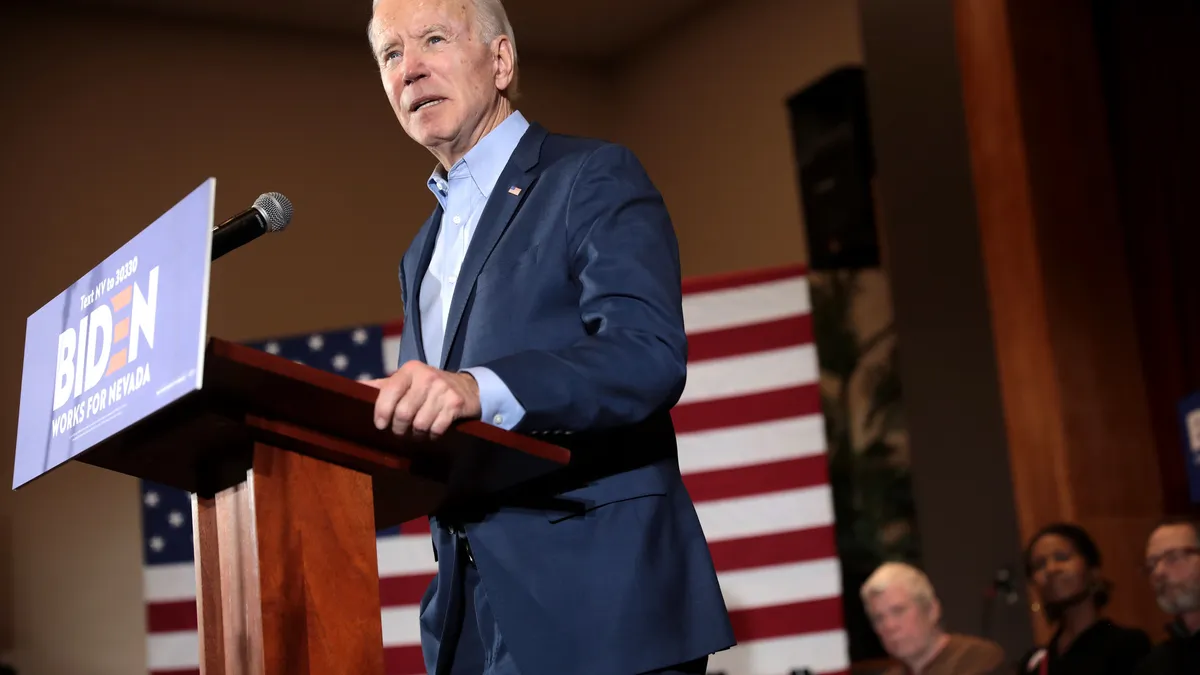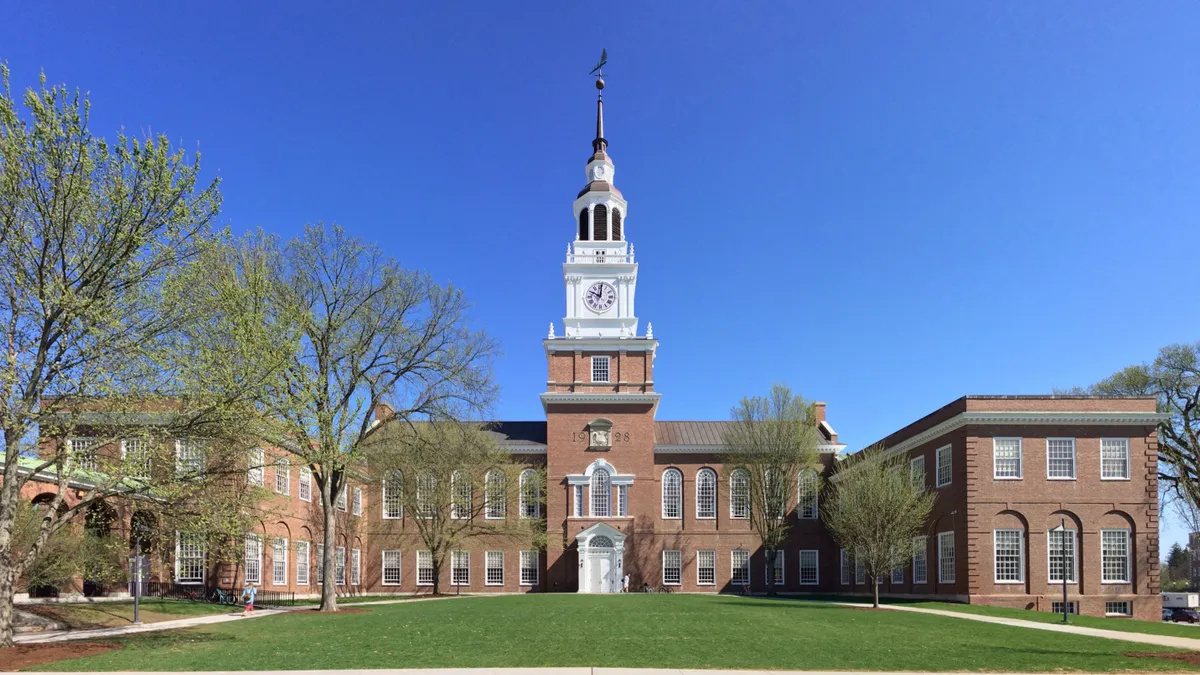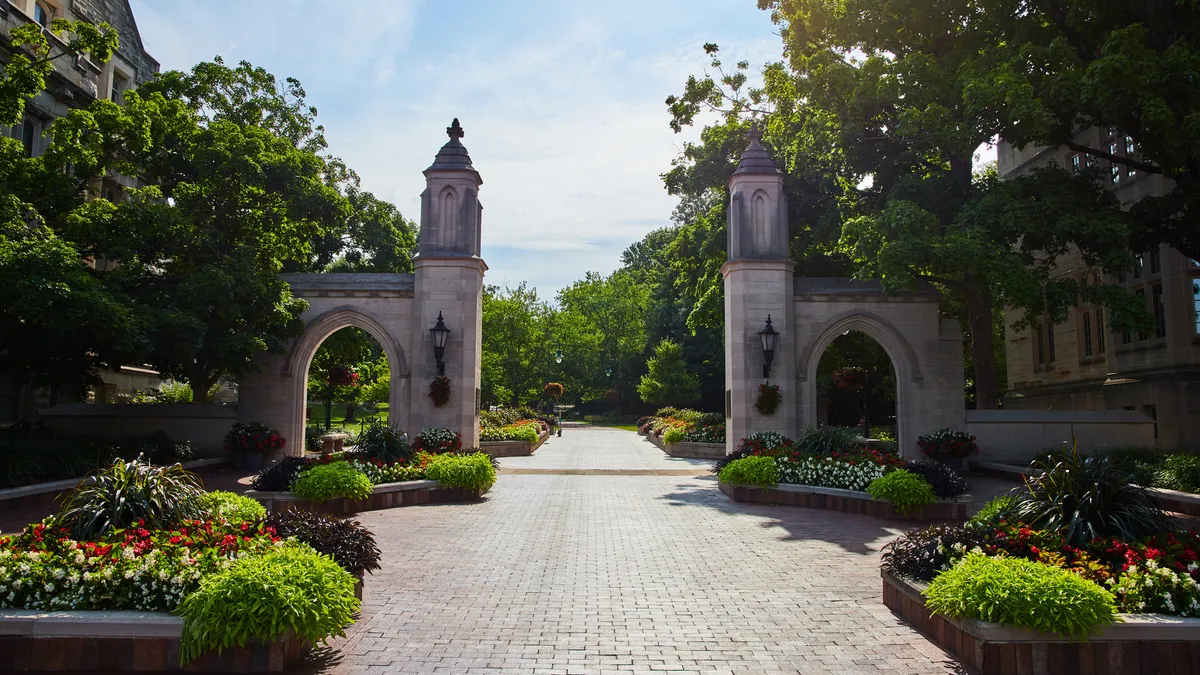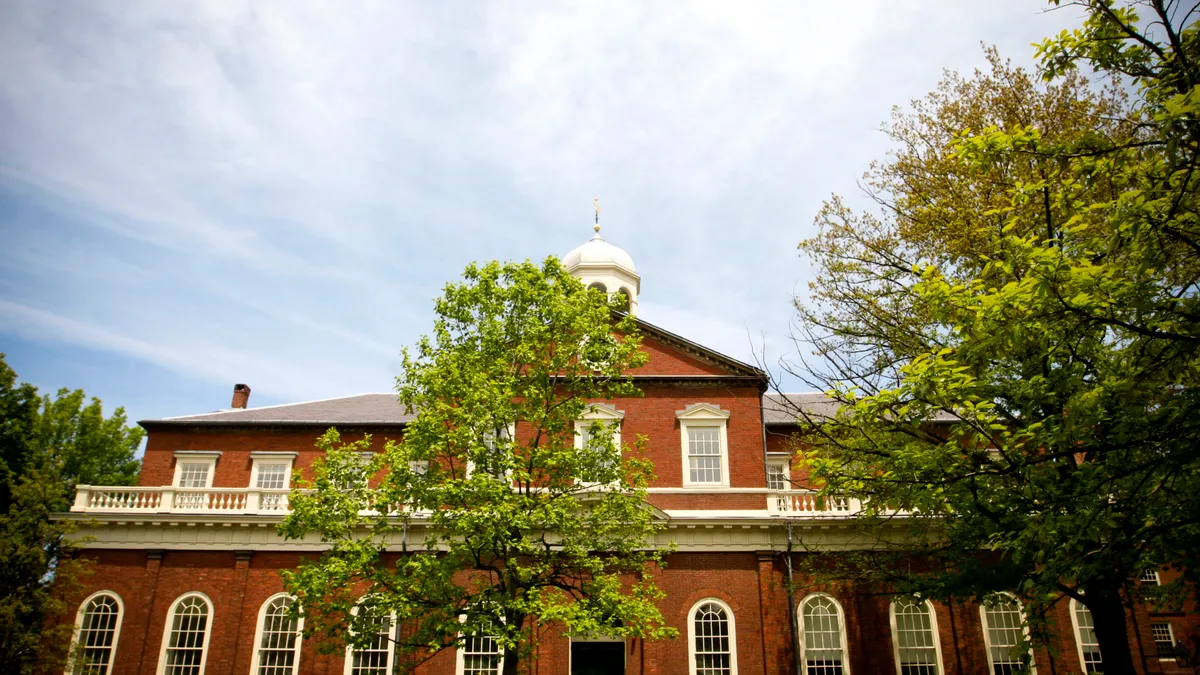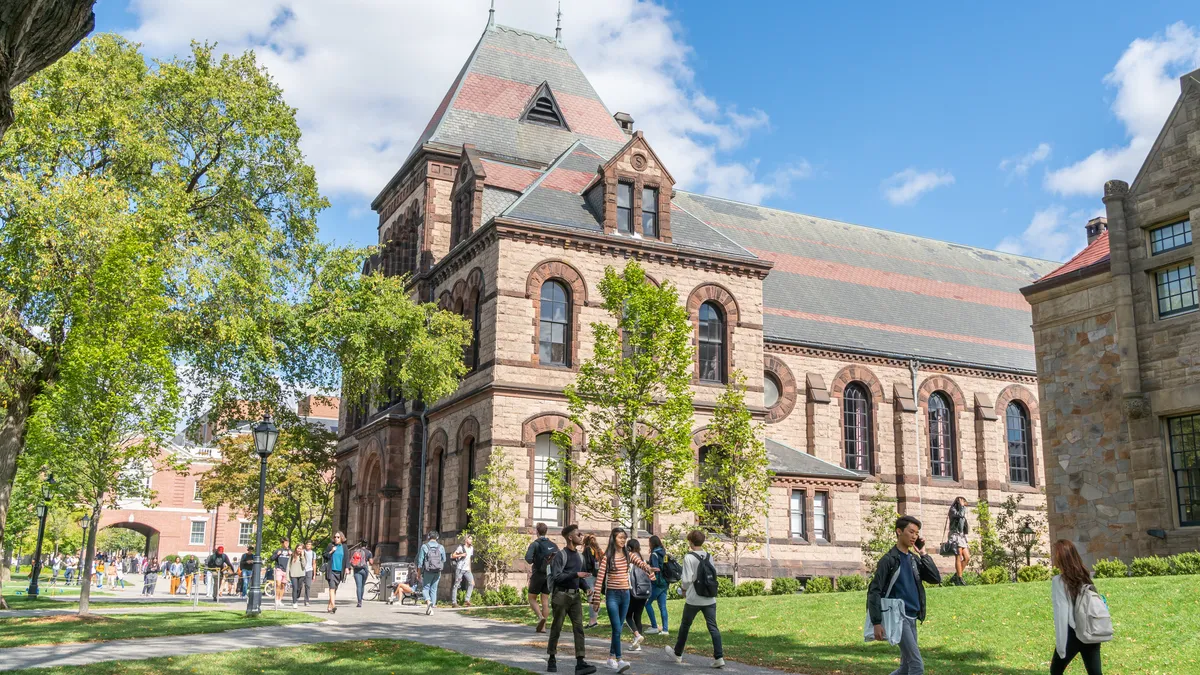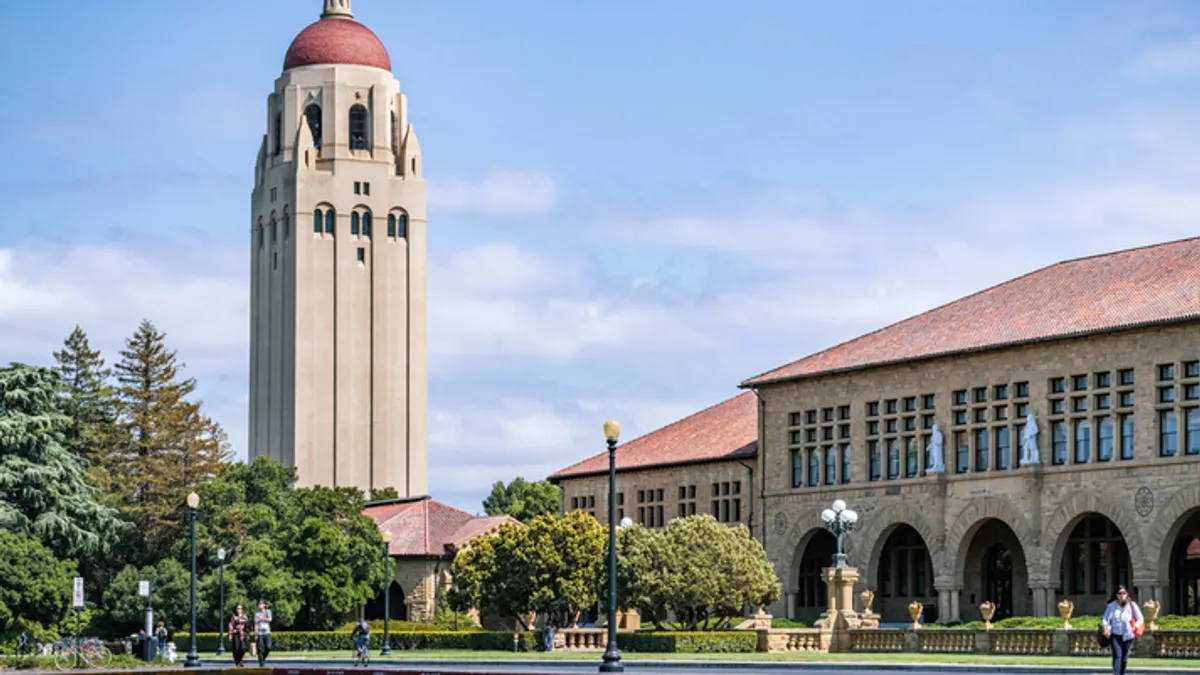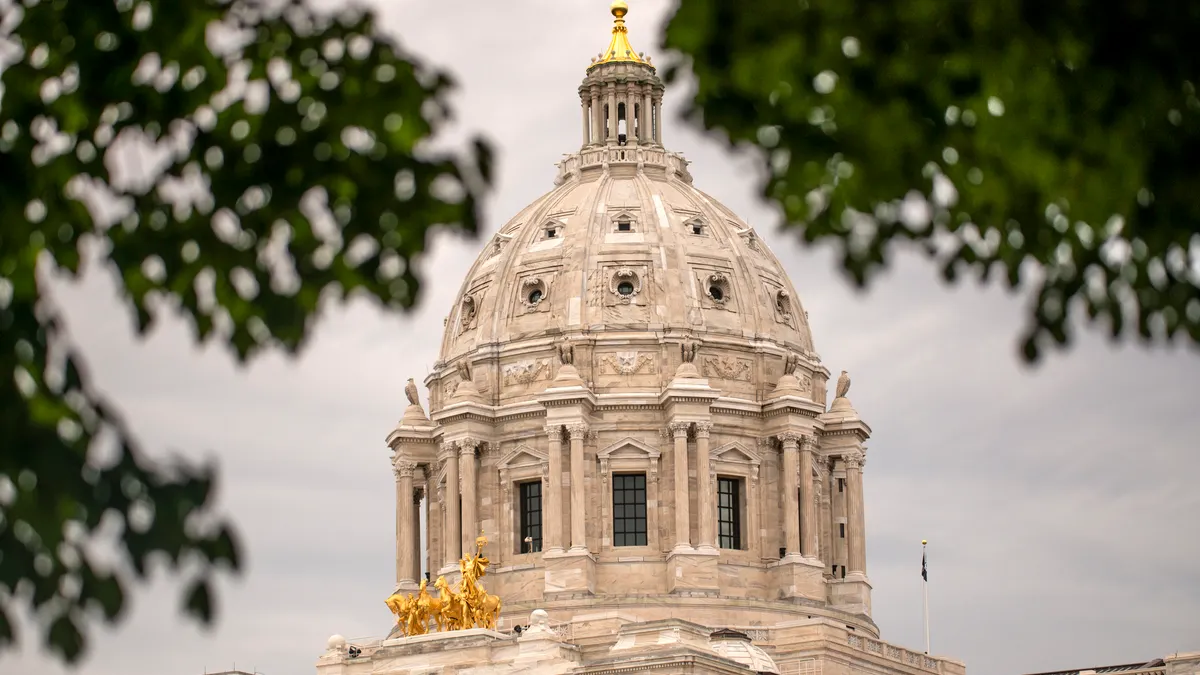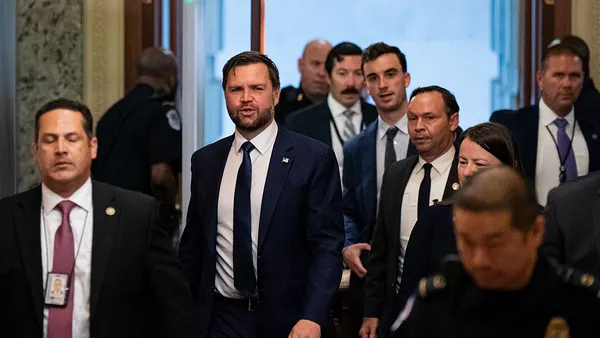The Trump administration's immigration policies have driven down international student enrollment in the last few years, policy experts say, a trend the public health crisis has exacerbated. Other factors, including rising tuition and more competition from other countries, have also contributed to the drop-off.
Joe Biden, if elected president, has pledged to walk back a laundry list of Trump-era restrictions, a feat likely made easier because several were achieved through executive orders he could rescind.
Some advocates for foreign nationals, however, believe Biden should go further and pursue more comprehensive immigration changes, potentially through Congress. The Biden campaign did not respond to Education Dive's emailed request for comment by publication time.
Not only are international students lucrative for colleges, generally paying full tuition, but they also contributed nearly $41 billion to the U.S. economy last year, according to NAFSA: Association of International Educators.
"Should Biden win the election, that change alone would instill tremendous hope for internationals, both current and prospective students from abroad," said Jenny Lee, an educational policy studies professor at the University of Arizona. "It would be especially important to not only reverse Trump's xenophobic policies but also combat the damaging rhetoric that has been used against internationals for so long."
What Biden could do quickly
One policy Biden has promised to end, and could do so quickly, is a ban on travelers from certain majority-Muslim countries entering the U.S.
President Donald Trump instituted the ban early in his term. It was struck down in courts until the U.S. Supreme Court upheld his third version in 2018.
Revitalizing the Deferred Action for Childhood Arrivals, or DACA, program could be another easy win for a Biden administration. As vice president under the Obama administration, Biden helped launch the initiative, which offers temporary deportation protection and work opportunities for unauthorized immigrants who came to the U.S. as children. Biden has said he wants to give DACA recipients access to federal loans and Pell Grants.
More than 450,000 unauthorized students are enrolled in U.S. postsecondary education, just under half of whom either have DACA status or are eligible for it, according to a report this April from the Presidents' Alliance on Higher Education and Immigration, which advocates for more lenient and welcoming policies.
Trump unsuccessfully attempted to end DACA. The Supreme Court in June found his recession of the program didn't follow the proper legal procedures, though it left open the possibility Trump could try again. The administration scaled the program back after the ruling.
Biden could fortify DACA through an executive order, said Rachel Banks, NAFSA's senior director for public policy and legislative strategy. But states have sued to end DACA under Trump. And with a newly solidified conservative majority on the Supreme Court, DACA might not survive another challenge at the bench.
A more permanent fix to DACA could come legislatively, Banks said. The U.S. House of Representatives passed a bill last year that would have given eligible DACA recipients a decade of legal residency, but the measure did not make headway in the Senate.
Even if Democrats claimed a majority in both congressional chambers, their Senate majority would likely be slim, necessitating Republican support to pass legislation, Banks said.
That's possible. Republican lawmakers have introduced bills that provide a legal path to citizenship for DACA recipients.
If Democrats controlled White House and Congress, "one might presume there's a higher probability this will get done," Banks said.
Recent rule changes
The administration has more recently released a couple of rules that hinder foreign nationals' potential to study and work in the U.S.
Trump's offices in October moved to narrow eligibility requirements for H-1B visas, which permit American companies to recruit foreign employees for speciality fields. Those changes could put international students off of studying in the country by limiting their work opportunities here after they graduate. And colleges have already sued over them.
In September, the White House proposed limiting international student visas to four year-periods and setting up precise new procedures for extending their stay.
Biden could revoke these regulations. However, if they are finalized before Trump leaves office, a new administration would have to go through the lengthy regulatory process again, said Stephen Yale-Loehr, a professor of immigration law practice at Cornell University.
The rules also could be undone through the Congressional Review Act, which gives lawmakers the ability to override finalized regulations within 60 days Congress is in session. Republicans took advantage of the tool early in Trump's tenure to throw out Obama-era rules.
More pressing, though, are the pandemic's effects on international and unauthorized students, and the Trump Education Department's refusal to grant them coronavirus relief funding, Yale-Loehr said.
Congress passed the Coronavirus Aid, Relief and Economic Security (CARES) Act in March, setting aside more than $6 billion for student emergency grants. The Ed Department blocked students not eligible for federal financial aid from receiving that funding, issuing an emergency rule and drawing several legal challenges.
Biden could reverse this restriction, too. Yale-Loehr noted that large-scale immigration changes might need to wait as a new administration addressed more immediate issues: the coronavirus and the fragile economy.
Yet sweeping changes are exactly what some immigration activists want. The last significant immigration proposal came in 2013, when the Senate, in rare bipartisan fashion, approved legislation creating a path for millions of unauthorized individuals to gain citizenship. The bill died in the House.
Miriam Feldblum, co-founder and executive director of the Presidents' Alliance, envisions higher education playing a much greater role in enacting these changes than during the Obama years. In an interview, she called for creating methods for unauthorized students to receive legal residency and financial aid. But other barriers for these students aren't as well-known and deserve attention, Feldblum said, such as them being barred from professional licenses in some states.
"We need a national strategy so that we can officially, in a common sense way, attract and fully benefit from global talent around the world," Feldblum said.



